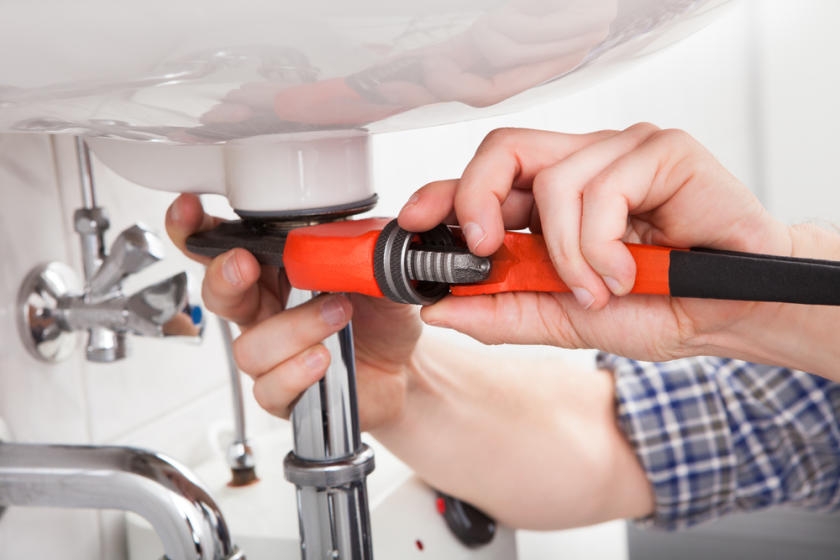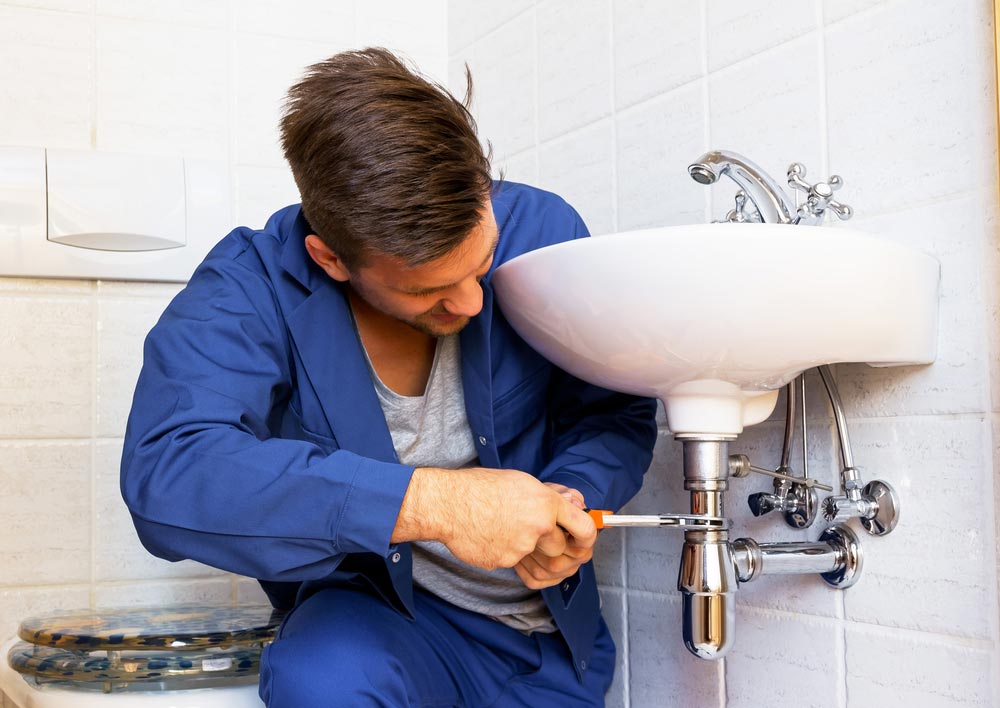Fast Solutions for Plumbing Emergencies: What to Do Until Help Arrives
Fast Solutions for Plumbing Emergencies: What to Do Until Help Arrives
Blog Article
The article following next involving Expert Tips for Managing a Plumbing Emergency Until Help Arrives is totally interesting. Don't bypass it.

Plumbing emergencies can strike at any time, causing stress and possible damages to your home. Whether it's a ruptured pipeline, a stopped up drain, or a leaking faucet, knowing how to manage the scenario until a specialist plumbing professional gets here can conserve you from additional problems. This short article offers important emergency pipes tips to help you minimize damages and restore control during a plumbing situation.
Switch off the Water System
The initial step in any pipes emergency situation is to turn off the supply of water. For localized concerns, such as a dripping faucet or toilet, switch off the valve near the fixture. When it comes to a significant leakage or ruptured pipe, situate your home's primary water shut-off valve and turn it off promptly. Recognizing the place of these valves ahead of time can save valuable time throughout an emergency.
Shut Off Your Hot Water Heater
In specific emergencies, such as a ruptured pipe, it's wise to shut down your water heater. This protects against getting too hot or damages to the unit when water quits streaming. Turn off the power supply to the hot water heater (electric or gas) and allow it cool off to stay clear of prospective dangers.
Temporarily Quit a Burst Pipeline
A burst pipeline can cause significant water damages in minutes. To alleviate the issue:
Call an expert plumber promptly to address the issue permanently.
Have an Emergency Pipes Kit
Prepare a fundamental pipes emergency situation kit to manage minor problems properly. Your kit must consist of:
Having these devices on hand can make a considerable distinction in your ability to handle emergencies.
Unclog Drains Pipes Securely.
A clogged drain can be an irritating and unpleasant issue. Right here's just how to tackle it:.
If these techniques don't work, prevent making use of too much pressure, as it might worsen the blockage.
Manage Overflowing Toilets.
An overflowing bathroom can trigger instant turmoil. Below's what you need to do:.
Address Tiny Leakages with Momentary Solutions.
Little leaks can rapidly become significant problems if left uncontrolled. Make use of these momentary repairs up until professional assistance arrives:.
While these fixes aren't irreversible, they can assist reduce water loss and damages.
Manage Frozen Pipeline Thoroughly.
In cooler environments, frozen pipelines are a typical emergency. If you believe an icy pipe:.
Know When to Call a Specialist.
While quick fixes can assist temporarily, specific plumbing concerns require prompt professional focus. Call a plumbing technician if:.
Quickly speaking to a professional makes sure the issue is fixed correctly and avoids additional complications.
Avoid More Damage.
Taking quick action to decrease damages can save you time and money in the long run. Below's how:.
Conclusion.
Plumbing emergency situations can be overwhelming, however with the appropriate knowledge and tools, you can handle the scenario properly until help shows up. By switching off the water, addressing small leakages, and making use of temporary fixes, you can reduce damages and maintain your home safe. Bear in mind, these pointers are temporary solutions; always speak with an accredited plumbing professional to take care of the root cause of the problem. Preparation and quick thinking are your best allies in any plumbing emergency.
8 Helpful Tips for Managing Plumbing Emergencies at Home
If your plumbing system hasn’t failed once, wait for it because almost everyone has a story to tell. Sometimes, it could be simple emergencies such as a leaking pipe, a blocked cistern, or even a big burst pipe. In situations like this, you need to have some handy tips to save you some money and from possible damages.
Take care of minor issues early.
Sometimes, you could have avoided an emergency by taking proactive measures while it was still early. Some major plumbing emergencies can be a result of an ignored minor issue. We recommend that you have items like plumbing tapes and other related items. A plumbing tape can allow you to manage minor leaks before the plumber arrives.
Cut off the water supply.
This tip is essential in almost any type of leakage problem. For problems like minor leakages in the toilet or kitchen, turn off the supply that takes water to the affected pipes. If the leakage is a major pipe, you must shut off the supply valve to the entire building. This will help you avoid flooding your home and neighbors if you share a flat.
Know your plumbing system
Folks typically move into a new apartment without understanding the water supply around the building. This can prove disastrous if a water emergency arises and the plumber is far away. The previous tip will prove useless if you don’t practice this one. More importantly, know where your water shut-off valve is located – you’ll need that knowledge to prevent potential home floods.
Have some common handy tools
There are lots of plumbing emergencies that you can handle without hiring a plumber. That’s why you must keep some tools available always. Some tools that you can use to fix simple plumbing emergencies easily include plumbing tapes, screwdrivers, thread seal tapes, plungers, pliers, tape measures, and rubber gloves.
Insulate your pipes from cold
You’ll save yourself from many plumbing expenses if you protect your water pipes from the cold. This is because of the harmful effects that cold weather can have on your pipes. During winter, your pipes can burst from being overly expected to freezing temperatures. So, make sure insulators are there to keep the pipes working correctly.
Avoid practices that will clog your toilet.
Many people indulge in practices that can damage the plumbing system of the entire building. One of these is when they use their toilet to dispose-off garbage. They flush all kinds of things, such as paper towels, bandages, hairs, female sanitary products, etc., down the toilet. This will block your toilet in the long run, incurring unnecessary expenditures. Dump such waste in the trash instead.
Check your dials regularly.
Sometimes, there could be leakages in your home without noticing them in time. So, constantly monitor your water meter dial. If the dial is reading when there is nobody using water, this is an indicator that there is leaking. Check for leaks immediately. Call a plumber as soon as possible if you can’t find any.
https://www.constructionplacements.com/8-helpful-tips-for-managing-plumbing-emergencies-at-home/

Do you appreciate reading up on Plumbing Emergencies: Tips on What To Do Before? Make a remark down below. We will be happy to see your thinking about this blog entry. We are looking forward to see you back again in the near future. Be sure to pause to promote this blog post if you appreciated it. Thank you for going through it.
More Details Report this page